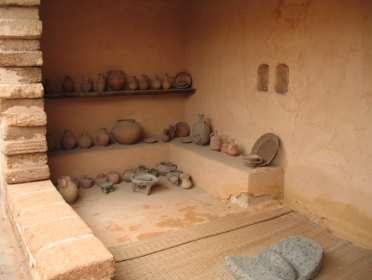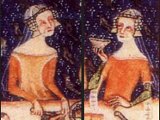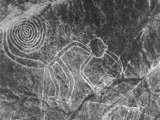Ancient Israel

Emergence of the Israelites and the Exodus
The Israelites arrived to the land of Canaan in the 2nd millennium BC. They are sometimes referred to as Hebrews which means to “from the other side (of the river)” referring to Abraham and the children of Israel who crossed the Jordan River into the land of Canaan. In the 17th century BC, a group of Israelites led by Abraham’s grandson Jacob moved to Egypt during the so-called Hyksos migration. According to the Hebrew Bible, Moses led the Israelites from the Ancient Egypt back to the Promised Land (the Exodus) in the 13th century BC.
Kingdom of Israel and Construction of the First Temple of Jerusalem
After the arrival to the land of Canaan from Ancient Egypt, the 12 Israelite tribes (12 descendants of Jacob) lived in a confederation led by the Judges. Samuel, the last Israelite Judge anointed Saul, the first king of united Kingdom of Israel ca. 1020 BC. Saul committed suicide after failing to defeat the Philistines and was succeeded by David from the Tribe of Judah ca. 1012 BC. David succeeded to truly unify the Israelite tribes and created a monarchy with capital in Jerusalem. Kingdom of Israel grew into an important power in the region and reached its golden age under David’s son and successor Solomon (r. ca. 970-930 BC) who built the First Temple of Jerusalem.
Kingdom of Judah and Kingdom of Israel
The Kingdom of Jerusalem split into two kingdoms – Kingdom of Judah on the south and Kingdom of Israel on the north after Solomon’s death ca. 930 BC. Both kingdoms eventually came under the control of their powerful neighbors. Kingdom of Israel was captured by the Assyrians in 722 BC, while its population was deported (the Babylonian captivity). The Israelites returned after Babylon was captured by Persian king Cyrus the Great in 538 BC who also allowed the Jews to rebuild the Temple of Jerusalem. Kingdom of Judah was destroyed by Babylonian Empire in 587 BC.
The Hebrew Bible and its Importance
The Israelites are traditionally regarded to be the first to develop the concept of monotheism or belief in one deity only. The Hebrew Bible (Old Testament in Christianity) became the basis for both Christianity and Islam which together represent more than one half of the world’s religion, while the Moses’ Torah (which was influenced by the Code of Hammurabi) became the basis of the Western civil law legal systems.




